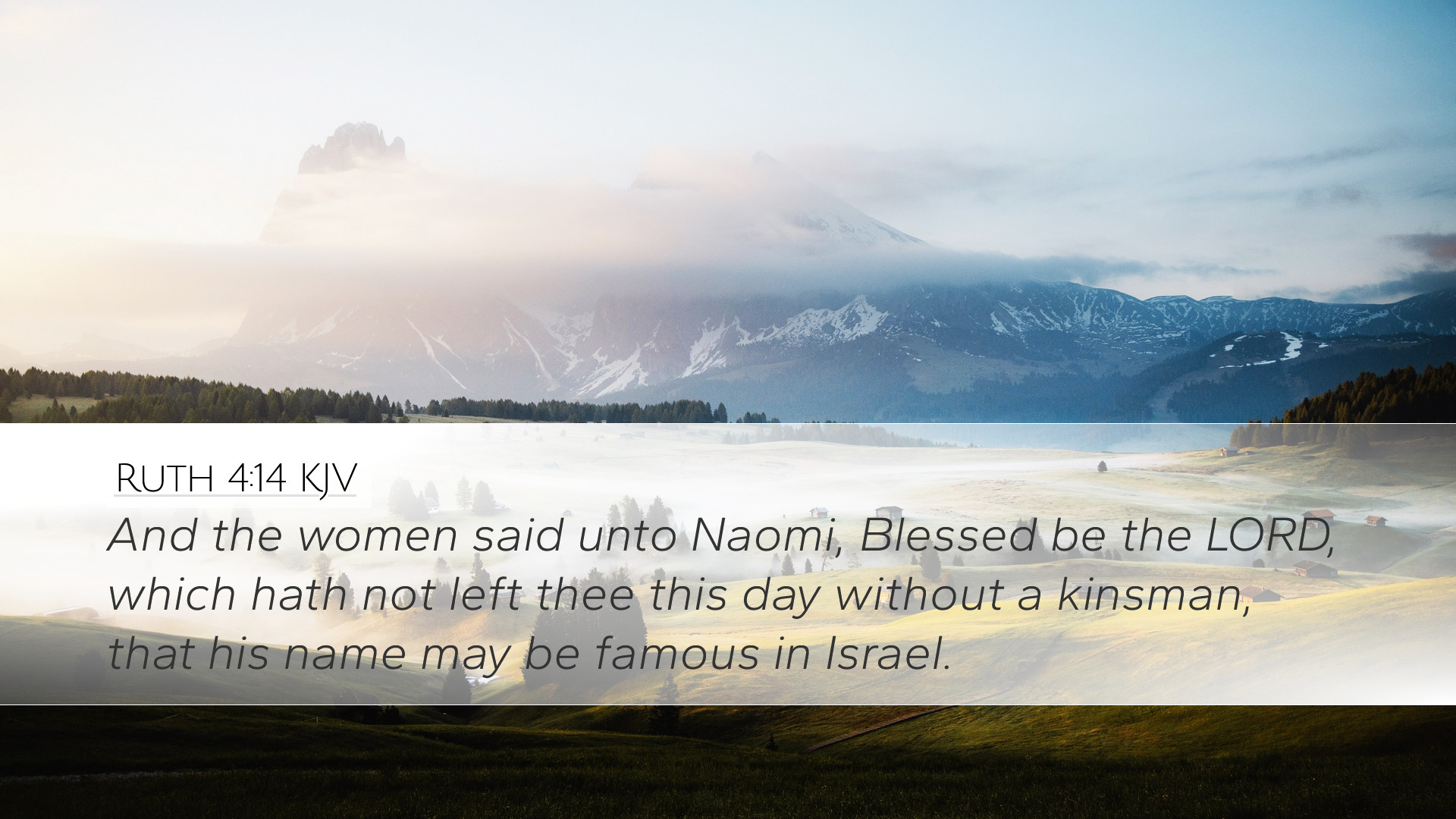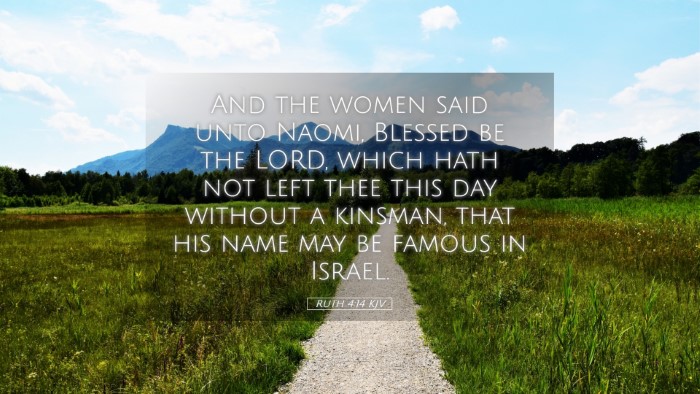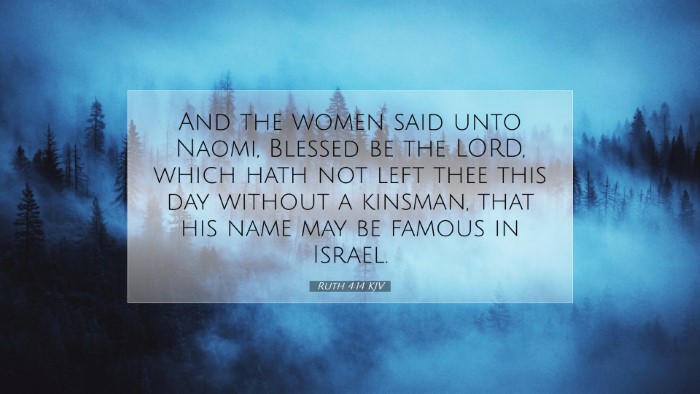Old Testament
Genesis Exodus Leviticus Numbers Deuteronomy Joshua Judges Ruth 1 Samuel 2 Samuel 1 Kings 2 Kings 1 Chronicles 2 Chronicles Ezra Nehemiah Esther Job Psalms Proverbs Ecclesiastes Song of Solomon Isaiah Jeremiah Lamentations Ezekiel Daniel Hosea Joel Amos Obadiah Jonah Micah Nahum Habakkuk Zephaniah Haggai Zechariah MalachiRuth 4:14
Ruth 4:14 KJV
And the women said unto Naomi, Blessed be the LORD, which hath not left thee this day without a kinsman, that his name may be famous in Israel.
Ruth 4:14 Bible Commentary
Bible Commentary on Ruth 4:14
Verse Reference: Ruth 4:14 (KJV) - "And the women said unto Naomi, Blessed be the Lord, which hath not left thee this day without a kinsman, that his name may be famous in Israel."
Introduction
This verse marks a significant moment in the Book of Ruth, reflecting the joy and recognition of God's provision for Naomi through Ruth's marriage to Boaz. The communal response of the women emphasizes the theology of redemption, kinsmanship, and the unfolding lineage that will culminate in King David and, ultimately, in the Messiah.
Commentary Insights
1. The Blessing of the Women
According to Matthew Henry, the women play a critical role in acknowledging the divine blessing in Naomi's life. Their declaration, "Blessed be the Lord," serves as a reminder of God's faithfulness and active participation in the story of His people. This blessing is not merely a congratulatory statement; it is a theological affirmation of God's providence.
- Divine Provision: The women recognize that God has provided for Naomi, illustrating the biblical precept that God cares for the vulnerable, in this case, a widowed mother-in-law.
- Covenantal Faithfulness: The blessing underscores the continuity of God's covenant relationship with Israel, highlighting that God does not abandon His people amidst their trials.
2. Kinsman-Redeemer Theme
Albert Barnes emphasizes the significance of the term "kinsman." The concept of the kinsman-redeemer (goel) is foundational in understanding God's redemptive plan. Boaz, as a kinsman-redeemer, not only restores Naomi's family line but also acts as a foreshadowing of Christ’s redemptive work.
- Family Restoration: The role of the kinsman-redeemer is to rescue and preserve family lineage, a theme that resonates deeply in ancient Israelite culture.
- Foreshadowing Christ: This act of redemption points forward to Jesus Christ, who redeems not only Israel but all humanity, making His name famous among the nations.
3. The Importance of Name and Legacy
Adam Clarke highlights the phrase "that his name may be famous in Israel" as a significant theological and cultural assertion. A name carries weight in biblical literature, often representing one's character, legacy, and the fulfillment of God's promises.
- Legacy of Boaz: The mention of Boaz’s name being "famous" denotes the honor and legacy he adds to Naomi's family, ensuring that the lineage continues with dignity.
- God's Sovereign Plan: God orchestrates events so that Naomi’s lineage through Boaz and Ruth contributes to His salvation history, ultimately leading to the birth of David and, subsequently, the Messiah.
4. The Role of Community
The involvement of the local women in this blessing illustrates the communal aspect of faith and support in Israelite society. The collective acknowledgment of God's faithfulness highlights the importance of community in understanding and experiencing God’s blessings.
- Support Systems: Their role reflects how individuals within the faith community come together to support one another and celebrate God’s blessings, signifying that faith is not lived out in isolation.
- Encouragement of Testimonies: The presence and voices of the women encourage the acknowledgement of God’s work in the midst of personal hardships.
Conclusion
Ruth 4:14 serves as a poignant reminder of God's unwavering faithfulness. The collective cry of blessing from the women encapsulates the themes of provision, redemption, legacy, and community. It is a profound affirmation that God fulfills His promises and works through both individual lives and communal experiences. For pastors, students, theologians, and scholars, this verse invites deep reflection on how the overarching themes of redemption and divine providence play out in our narratives, ultimately pointing us toward the redemptive work of Christ.


